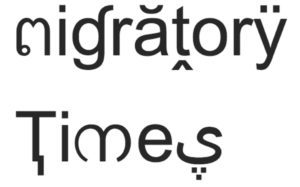Time As (Dis)order
Time As Metrics
Time As Scale
Time As Waiting
Time As Uncertainty
Time As Evacuated Touch
Time As Quietude
Time As Chaos
Time As Foreclosure
We are humans relearning to wash our hands.
Washing our hands is an act of love
Washing our hands is an act of care
Washing our hands is an act that puts the hypervigilant body at ease
Washing our hands helps us return to ourselves by washing away what does not serve.
And the people stayed home.
And they read books, and listened, and rested, and exercised, and made art, and played games, and learned new ways of being, and were still.
And they listened more deeply. Some meditated, some prayed, some danced. Some met their shadows. And the people began to think differently.
And the people healed.
And, in the absence of people living in ignorant, dangerous, mindless, and heartless ways, the earth began to heal.
And when the danger passed, and the people joined together again, they grieved their losses, and made new choices, and dreamed new images, and created new ways to live and heal the earth fully, as they had been healed.
Keep a distance from each other. Work from home. Or rely on a social safety net. The measures against the coronavirus pandemic are made by and for those parts of the world that can afford to retreat in individualism. But for millions of people in cities like Lagos, Nigeria, there’s no such thing as socially distancing yourself.
As the threat of COVID19 emerged into full global view, African women’s rights organisations started to raise red flags around what effective responses needed to consider-but would likely leave out. They were prepared. Not with the practicalities of hand sanitisers, virtual work arrangements and food distribution plans, but with the familiarity of what crisis means for women, and the knowledge that if we fail to take into account women’s needs, we are not going to survive this.
On 11 March, the World Health Organization (WHO) declared the coronavirus outbreak to be a global pandemic-a classification used once an epidemic grows in multiple countries and continents at the same time. Most countries in the world have registered at least a COVID-19 case with numbers in Africa, as of this week, hovering over 10,000.
La expresión “estamos viviendo un momento interesante” nunca fue más cierta que ahora. Desde que la Organización Mundial de la Salud (OMS) declaró una pandemia global por el nuevo coronavirus, llamado Covid-19, la mayoría de los medios de comunicación e internet desbordan información y desinformación sobre el virus, la forma de contraerlo, la forma de contagio y la mejor manera de protegernos a nosotros/as mismos/as y nuestros seres queridos. Yo también me siento perdida en múltiples laberintos de información y actualización sobre el virus, y me inquietan mis seres queridos, amigos/as y compañeros/as de trabajo del mundo entero. En estos tiempos de cuarentena y aislamiento tanto recomendados y decretados, como autoimpuestos, internet y otras tecnologías de comunicación se han convertido en un salvavidas para mucha gente.
The saying “we live in interesting times” has never been more true than it is now. With the World Health Organization (WHO) declaring the novel coronavirus, Covid-19, a global pandemic, most news outlets and the internet are flooded with both information and misinformation about the virus, how it’s contracted, how it’s spread and how people can protect themselves and their loved ones from contracting it. I too find myself lost in various wormholes of information and updates about the virus, as I worry about my loved ones, friends and workmates scattered across the world. In this time of self and enforced quarantine and isolation, the internet and other communication technologies have become a lifeline for many people.
I used Vine Deloria, Jr.’s essay as a reference to inform my thinking around space, time, and our relationships with one another. As I have said elsewhere, the global pandemic brought upon through the mishandling and (in what is presently the United States) inept management of any sort of competent response is, to me, a metaphor for late capitalism and the failings of the neolibral state…
I haven’t been writing here, but I have been writing here. Just in my head. I realized that I was feeling guilty for not getting words down here and I wonder if that’s just another way that I have internalized capitalism’s drive for production. I also feel guilty for not working on an academic manuscript–even though I am not currently affiliated with any institution of higher learning. I feel guilty for not working on anything creative. [Sidebar: bookmarked for someday when I feel like writing about the differences between myself and my European partner when it comes to daily productivity].

